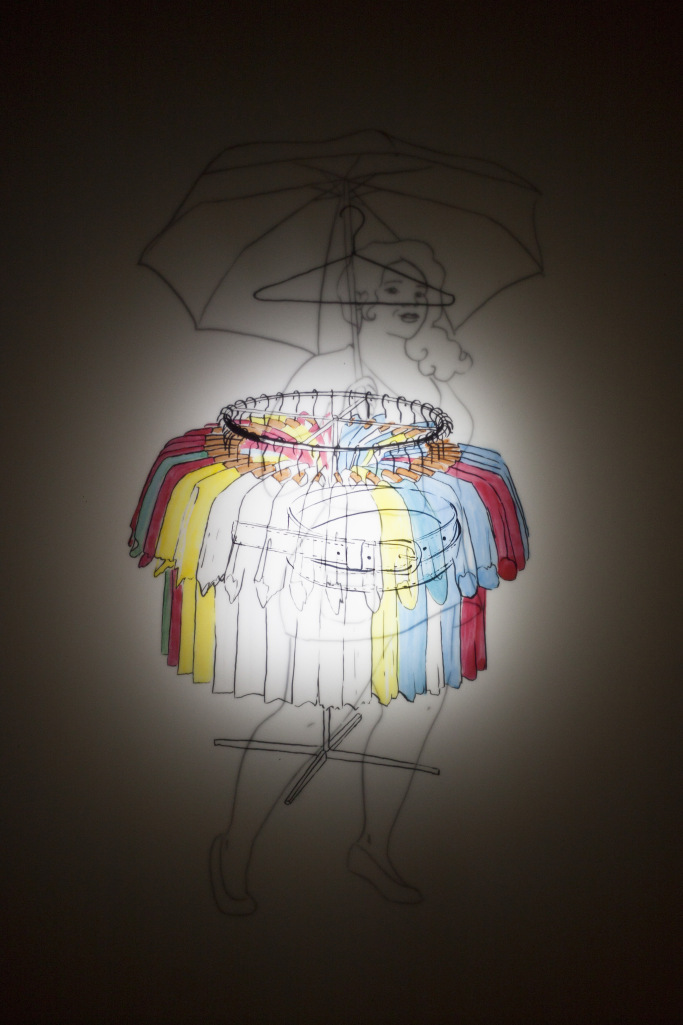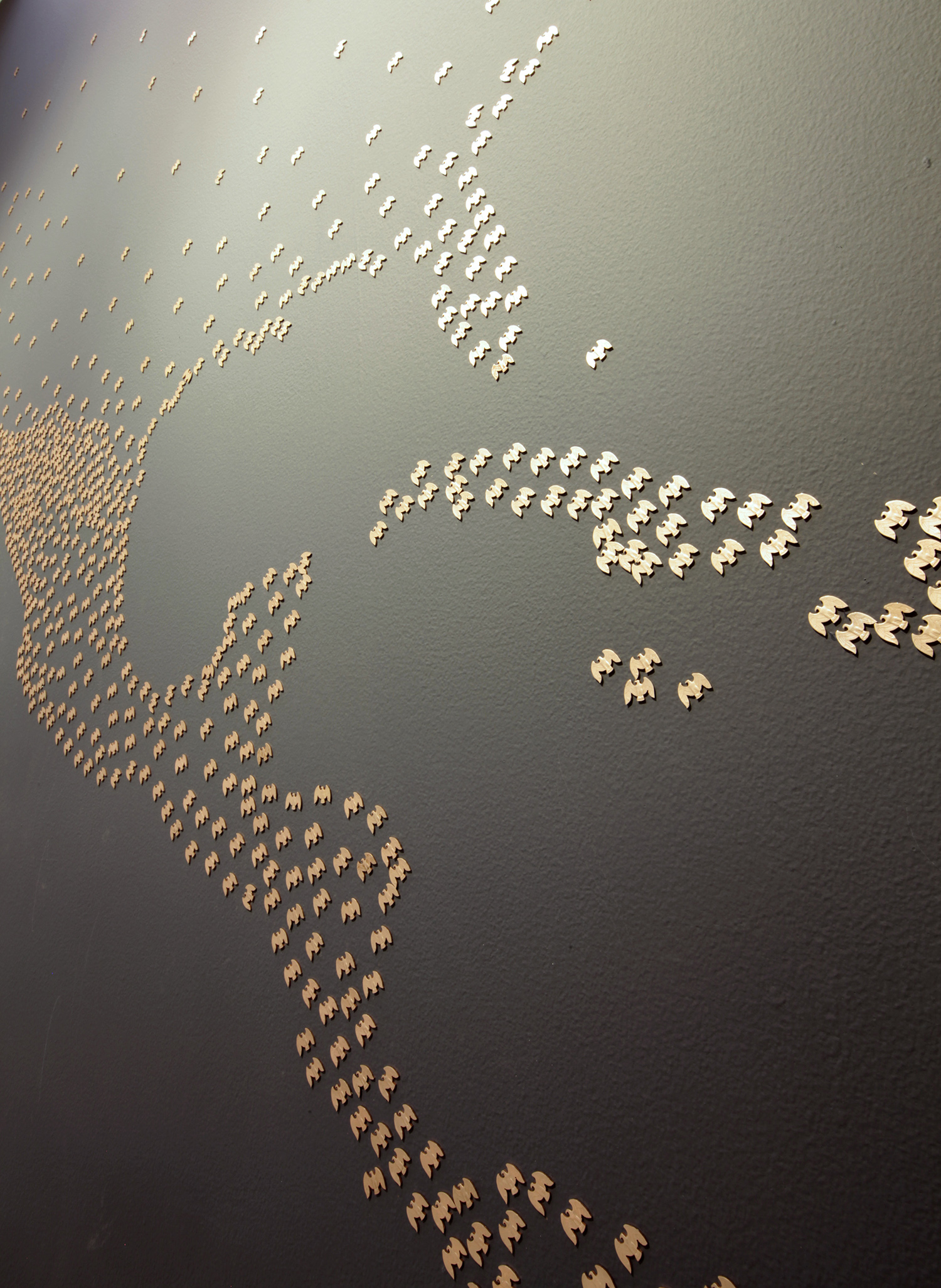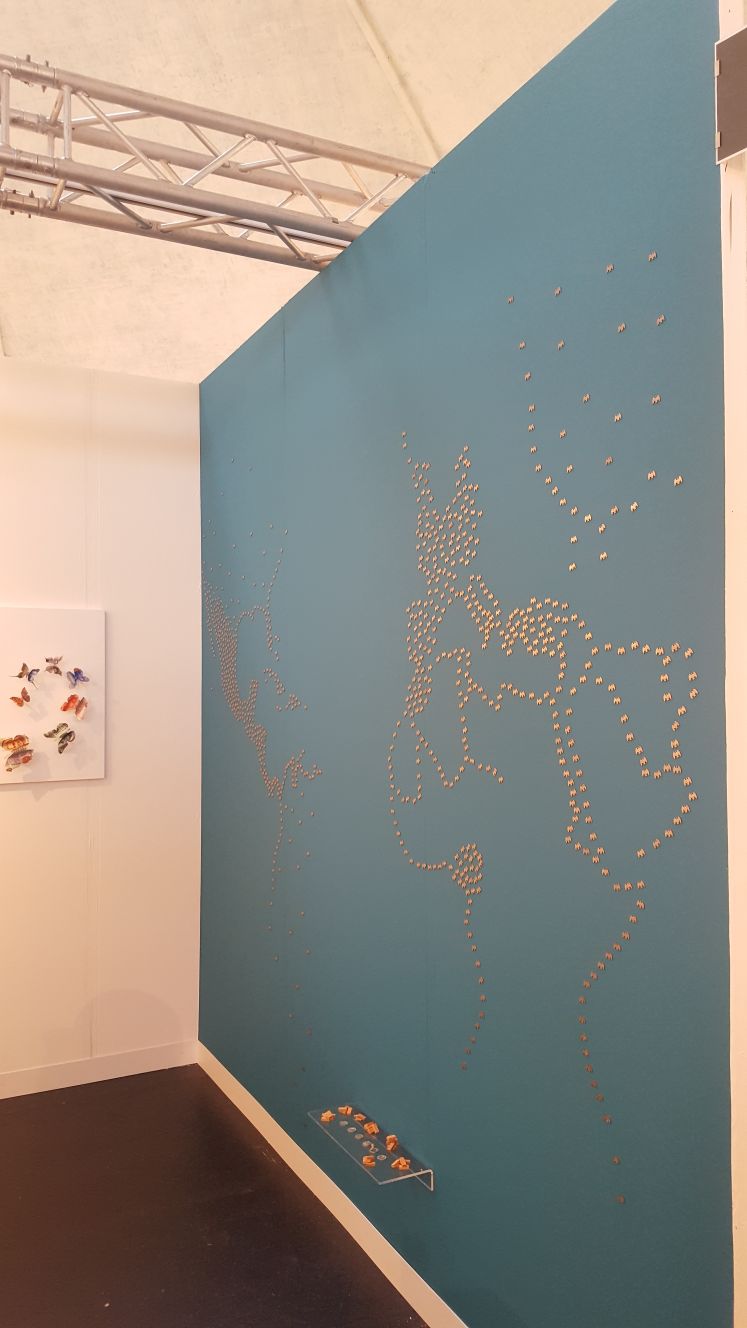Mauricio Esquivel
Mauricio Esquivel (El Salvador, 1983) uses socio-political implications of the context.
Mauricio has been developing projects about different social issues as Violence and Migration and the relationships between the history of different contexts represented in their currency.
Making handmade projects, the artist suggests different possibilities and gestures that change the way how we perceive the relations between power and economy.
Esquivel uses coins to explore social subjects such as migration, violence, war, displacement, freedom and hope.
Displacement Line “In 2001, El Salvador adopted a bi-monetary system that introduced the United States dollar along with the ‘colón’. This ‘foreign’ currency infiltrated in transactional experiences throughout the country. Toying with this historical reference, Esquivel reinvents this 25-cent coin—locally known as “Cora”, a phonetic version of the American “quarter”—by laboriously hand cutting the distinctive eagle out of its center.” Claire Breukel
As a symbol of strength, in “Displacement line” eagles are arranged to depict a map of South and Central America breaking up into the United States over a blue ocean-color wall. On one hand the eagles are set free from their casing and on the other hand their removal renders the coins useless and therefore valueless, shedding a satirical light on the notions of exchange.
Forced displacement is a phenomenon that is growing and is affecting the entire world. With this site-specific installation, Mauricio shows the sadness of the displacement, but also through its beauty gives us the feeling of hope and freedom.
This wall intervention is a reflection about the migration process, and how this is a natural need for everyone everywhere the history of the world is build a clearly example of this process is the the US.
Central America Inverted. This project is about the importance of thinking of Central America as a region and about the different moments of colonization and post colonization. It is also a reflection, a mirror of recognizing and belonging.
Between March 12, 1859 and October 26, 1863, Gerardo Barrios was President of El Salvador. Barrios was a liberal and supported the unity of Central America. After his death, he was the leader of the Unionist Movement and served as president of El Salvador several times. He was known for his concern for international relations and is attributed for introducing coffee production to El Salvador, accelerating the spread through Central America. Coffee became the basis of El Salvador's economy.
Nowadays the Central American Integration System (Spanish: Sistema de la Integración Centroamericana, or SICA) is the economic and political organization of Central American states since February 1, 1993. On December 13, 1991, the ODECA countries (Spanish: Organización de Estados Centroamericanos) signed the Protocol of Tegucigalpa, extending earlier cooperation for regional peace, political freedom, democracy and economic development. SICA's General Secretariat is in El Salvador.
The Central American Bank for Economic Integration has not introduced a common currency, and dollarization is possible. The region has diversified output and price and wage flexibility; however, there is a lack of business-cycle synchronization, dissimilar levels of public-sector debt, diverging inflation rates and low levels of intra-regional trade.
The efforts of each country in the region are currently divided by violence, drugs and migration, which produces different kinds of segregation.
The content of this project is based on The Cuban Revolution (1953–59), an armed revolt conducted by Fidel Castro's 26th of July Movement and its allies against the U.S.-backed authoritarian government of Cuban President Fulgencio Batista. The revolution began in July 1953, and continued sporadically until the rebels finally ousted Batista on 1 January 1959, replacing his government with a revolutionary socialist state. The 26th of July Movement later reformed along communist lines, becoming the Communist Party in October 1965.





















